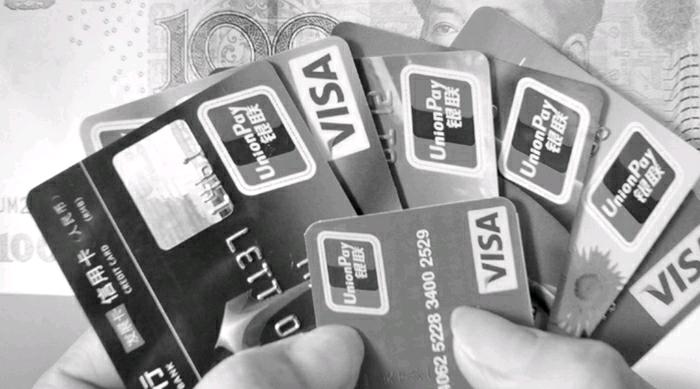Why China Needs Independent Credit Reporting Agencies
An effective personal credit reporting system is a critical component of Chinas strategy to build an honest society, promote financial inclusion and boost domestic consumption.
The development of a credit reporting system in China dates back to 2006, when the Peoples Bank of China, the central bank, established the Credit Reference Center. The center is an independent credit information service tasked with operating a national centralized commercial and consumer credit reporting system to enable financial institutions to assess borrowers creditworthiness.
In 2013, the State Council issued a directive, Regulations on the Credit Reporting Industry, setting out a blueprint for the development of the personal credit reporting market. In 2015, the central bank took a further step to open up the sector. (Editors note: This included asking eight companies to“get ready” to enter the personal credit reporting industry, although none have so far obtained a license.)
Based on Chinas experience over the past decade, we believe that the PBOCs Credit Reference Center should remain at the core of the individual credit reporting system, with independent third-party commercial credit reporting agencies playing a supplementary role. The center has played a crucial role in facilitating lending and improving financial services. By collecting credit information mainly from bank loan records but also from sources including the social security system, tax and court records, the center has created a credit dossier on almost every individual in the country.
But in the age of internet finance, there are limits to the central banks personal credit reference system. First, there are about 500 million people in the country who dont have any credit activity with licensed financial institutions. Even if the center has a file on them, it is relatively thin and cant be a comprehensive reflection of their credit situation. Second, as more and more people use the internet in their daily lives, endless amounts of information are being generated and left on the internet. At this time, collecting this information is beyond the capability of the center, and it needs to turn to private credit bureaus to build a more comprehensive picture of a persons credit history.
The implementation of the 2013 regulations paved the way for private credit reporting agencies to enter the market and fill in the gaps in the government-controlled reporting system using big data analysis. There should be three objectives to this strategy. First, these market-oriented companies should obtain credit information from companies that provide services widely used by ordinary people, such as telecommunications, internet and e-commerce, and also financial services, which until now havent been included in what is considered to be standard financial services.
Second, the security of credit data must be protected. The virtual and open nature of the internet has made information susceptible to being leaked, stolen and used illegally. Although the 2013 regulations provide some legal protec- tions, they lack sufficient detail on the collection and use of data, and its distribution to third parties.
Lastly, to guarantee the integrity and trustworthiness of the credit reports, they should be independent, impartial and professional. From an economic perspective, credit reports should be public goods, and their providers — credit reporting agencies — should observe the principle of “market neutrality.” This means companies should be independent from individuals and businesses that provide information to them and from the organizations to which they provide credit reports. Lack of independence could compromise the agenciesreputation and lead to the misuse of data, for example, to gain a competitive advantage for the company controlling the agency, or to influence an individuals credit score.
However, the principle of market neutrality has not been well-followed in China. Some companies involved in the PBOCs “get ready” project are collecting personal credit data from other businesses owned by their parent company rather than from independent third parties or companies servicing third parties.
For example, a credit bureau that was set up by one ecommerce firm built up credit profiles of individuals from their transaction and financial histories on the internet finance platform and e-commerce business of its parent company. The firm calculated credit scores based on the profiles and used them to decide whether or not to approve applications for installment loans, internet microfinance loans and other kinds of loans offered by companies cooperating with the parent.
The credit bureau also collected information on customers from the parent companys e-commerce business and allowed other businesses in the group, such as finance, car rental, hotels and online shopping, to use the data. But while the credit scores may be appropriate, given the analysis and risk assessment of the customers in these business areas, it remains to be seen whether those scores would be fair overall. Customers of the e-commerce company could also be incentivized to buy more goods and services from its various businesses to improve their credit scores. Lack of market neutrality could also lead competing credit information providers to refuse to share their data and for credit bureaus to refuse to share their reports with third parties.
All of these problems could affect the accuracy, fairness and usefulness of credit reports, which is not conducive to improving quality and standards in the personal credit reference industry.
Only a stand-alone third-party credit reporting agency can truly uphold the principle of market neutrality. Ideally, the company should not have one controlling shareholder, and the main shareholders should not control relevant commercial businesses to avoid potential conflicts of interest.
An independent credit reporting agency would not need to be backed by the government. Instead, it could be set up by market-oriented institutions or an industry-led selfregulatory organization. As long as the market is fully open, competition will decide which companies succeed. In the United States, for example, there are three big credit bureaus— Equifax, TransUnion and Experian. None operates other profit-making commercial businesses, and the governments main role is to formulate laws and regulations. Market openness and competition effectively ensure the objectivity, neutrality and fairness of these companies. This is a system China can learn from.
Information is a valuable asset, and as such, the market for personal credit data has become the subject of fierce competition between credit bureaus. Some are refusing to share information, and this has led to the creation of so-called information islands, which is not conducive to the development of the credit reporting market.
The industry needs to set up a self-regulatory body to act as a bridge between the government and the market, to un- derstand the dynamics of the market, set industry standards, coordinate the relationship between key parties and act as a platform for the sharing of information. The establishment last year of the China Internet Financial Industry Credit Information Sharing Platform was an important step forward. If we can now establish a self-regulatory body with the credibility to push the industry to operate in a market-oriented way, we will hopefully have created a powerful supplement to the PBOCs personal credit reporting system.

